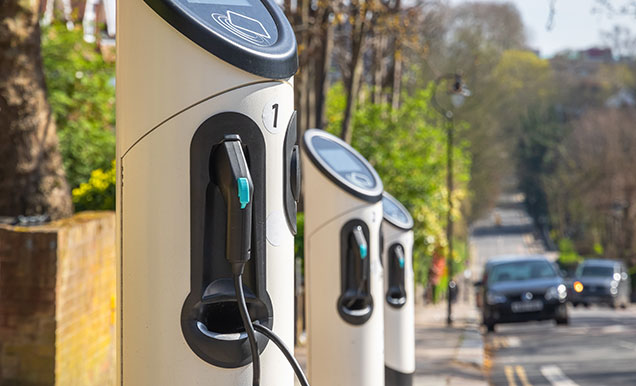Is the UK set to become a world leader for electric vehicle infrastructure

In what may become known as a pivotal moment in Britain’s previously sluggish electric vehicle adoption, the UK Department of Transport this month announced a £63 million investment in electric vehicle charging infrastructure.
Released in tandem with the Electric Car Grant, providing tiered subsidies for new EV purchases, these large-scale infrastructure plans will tackle the biggest barrier to adoption: the infrastructure of charging points.
Extensive UK EV Charging Network
The UK is home to Europe’s most powerful electric vehicle charging hub, Energy Superhub Oxford, which is powered entirely by renewable energy. There are now over 82,000 public charging points available across the country, which has more than doubled since early 2023. With that progress, it may seem surprising that charging availability remains a key barrier to EV adoption.
Consumers cite patchy distribution, unreliable systems and high costs as their concerns about reliance on electric vehicle infrastructure, especially for longer or more rural journeys. Reliability is crucial for electric vehicle charge points, as drivers need confidence that chargers will be working and available when they arrive — without it, range anxiety and mistrust in the network grow, slowing EV adoption.
To tackle these concerns the British government has committed £400 million in the 2025 Spending Review to improve charging infrastructure, specifically aimed at aiding long journeys, on the collection of major roads, known as the Strategic Road Network.
Electric vehicle fleet growth
Many industries are already realising the benefits of an electric fleet, NHS England will join them through an £8 million sustainability fund to transition ambulances and medical fleets to electric vehicles and provide charging infrastructure for more than 200 locations.
Earlier this year BT Group announced the UK’s largest ever commercial Electric Vehicle fleet order of 3,500 vehicles, bringing their total to nearly 8000. Royal Mail are close behind, adding their 7000th electrical vehicle to the delivery fleet in May.
British EV fleets trail behind the giant scale of Walmart, Amazon and PepsiCo who lead the global migration to clean transport. The government’s £30 million grant for charge point installation for commercial vehicles will aid the transition of the road freight and coach sectors, enabling British businesses to close the gap.
Electric Vehicle adoption in the UK is growing
Five years ago, the UK had achieved only 10% EV and PHEV vehicles, trailing far behind the Nordic countries leading the way: Norway had 75% adoption, Iceland 45% and Sweden 32%.
Last year, more than 381,000 electric vehicles were sold in the UK, more than any country in Europe, and the third highest globally.
Aided by innovative at home charging methods such as utilising lamppost style street charging from Shell, and new local government funding for under pavement cabling, enables homes without off-street parking to benefit from cheaper domestic charging rates.
Target 2030: zero emissions vehicles – Is it achievable?
With the 2023 target to end the sale of new petrol and diesel cars on the horizon, are these new incentives and grants sufficient to get British consumers and businesses to 100% EV adoption in just 5 years? It all comes down to the infrastructure. Reliable rapid charging points distributed across the UK road network will be the lynchpin that enables this transition.